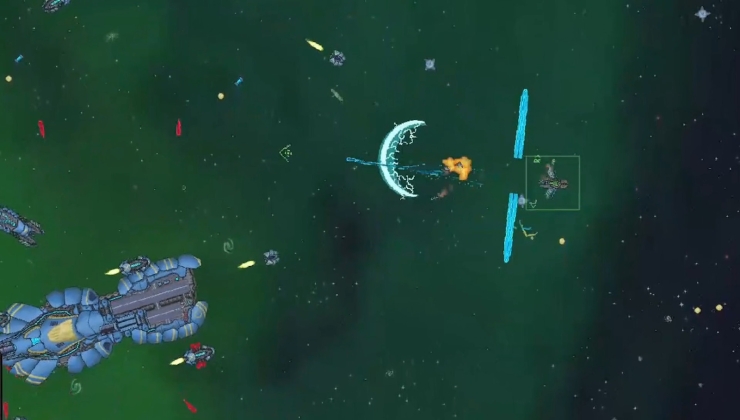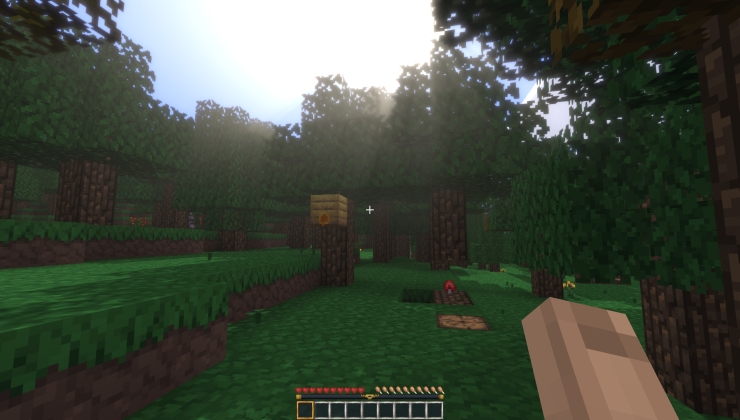The Wine 7.22 development release is now available for the open source Windows compatibility layer, as they continue working towards the Wine 8.0 release. This is part of Steam Play Proton, which allows you to play tons of Windows games on Steam Deck and Linux desktops. Once a year they make a big new stable release, and eventually Proton updates to it too.
Here's the highlights of Wine 7.22:
- 32-on-64 thunks for both Vulkan and OpenGL.
- OpenLDAP library bundled and built as PE.
- Support for the RAW print processor in WinPrint.
- More progress on the long types printf format conversion.
- Various bug fixes.
Eventually, the 32bit on 64bit work will allow you to run 32bit apps / games on 64bit Linux without any 32bit libraries on your system. For bug fixes they noted improvements for: Syberia, Gothic II, Saints Row 2022 and plenty of miscellaneous fixes elsewhere.
ICYMI: Vulkan-based D3D9, 10 and 11 translation layer DXVK version 2.0 out now.
Want help managing Wine on Linux? You can try Bottles, Lutris and Heroic Launcher.

also is there a performance penalty for using this instead of directly engaging the x86 CPU's 32bit mode as is done now?
joke but not joke: I can fully visualize Glorious Eggroll Linux Runtimes being distributed via ProtonUp-QT with extra patches for ancient Linux on modern Linux retrocompatibility, then Bottles, Lutris, etc pick it up as well
Last edited by Marlock on 28 Nov 2022 at 9:49 pm UTC
Eventually, the 32bit on 64bit work will allow you to run 32bit apps / games on 64bit Linux without any 32bit libraries on your systemI absolutely love this initiative!
I'm curious about one thing. Would 32-on-64 increase the usable memory for 32 bit software in Wine? If that is the case, then it would be a benefit for 32bit games that suffer from OOM crashes in proton. Borderlands 2 for instance.
Probably not. Each 32bit process is still limited to 2^32 addresses.
A real kernel could probably be mapped outside of that address region, allowing the process to use more of its 4GB. However, wine don't exactly has a kernel.
Compared to running on a 32bit kernel, other processes would be able to spread across the full address range. However, Wine is already relying on the OS to manage the processes.
Just a guess though.
I'm curious about one thing. Would 32-on-64 increase the usable memory for 32 bit software in Wine? If that is the case, then it would be a benefit for 32bit games that suffer from OOM crashes in proton. Borderlands 2 for instance.
I don't think so because I'm not sure how you would navigate things like pointers taking double the space to account for larger memory addresses. Some very low level logic could break if the program is reliant on certain types taking up a specific amount of memory.
it could become an optional (off-by-default) feature, but games being games, you might suffer the first crash during a final boss fight. shivers!I'm curious about one thing. Would 32-on-64 increase the usable memory for 32 bit software in Wine? If that is the case, then it would be a benefit for 32bit games that suffer from OOM crashes in proton. Borderlands 2 for instance.
I don't think so because I'm not sure how you would navigate things like pointers taking double the space to account for larger memory addresses. Some very low level logic could break if the program is reliant on certain types taking up a specific amount of memory.
Last edited by Marlock on 9 Dec 2022 at 4:37 pm UTC
I'm curious about one thing. Would 32-on-64 increase the usable memory for 32 bit software in Wine? If that is the case, then it would be a benefit for 32bit games that suffer from OOM crashes in proton. Borderlands 2 for instance.
I don't think so because I'm not sure how you would navigate things like pointers taking double the space to account for larger memory addresses. Some very low level logic could break if the program is reliant on certain types taking up a specific amount of memory.
The thinking was that if wine actually implements stuff in the 32 bit libraries, that it would be moved to 64 bit code and out of the address space of the windows executable.










 How to set, change and reset your SteamOS / Steam Deck desktop sudo password
How to set, change and reset your SteamOS / Steam Deck desktop sudo password How to set up Decky Loader on Steam Deck / SteamOS for easy plugins
How to set up Decky Loader on Steam Deck / SteamOS for easy plugins
See more from me